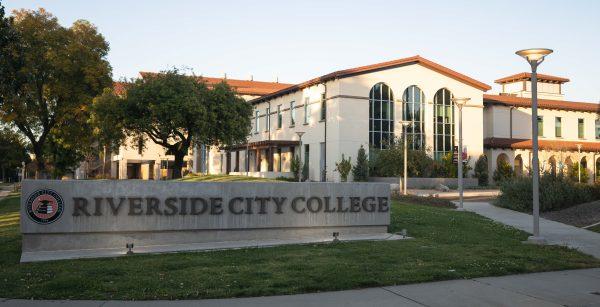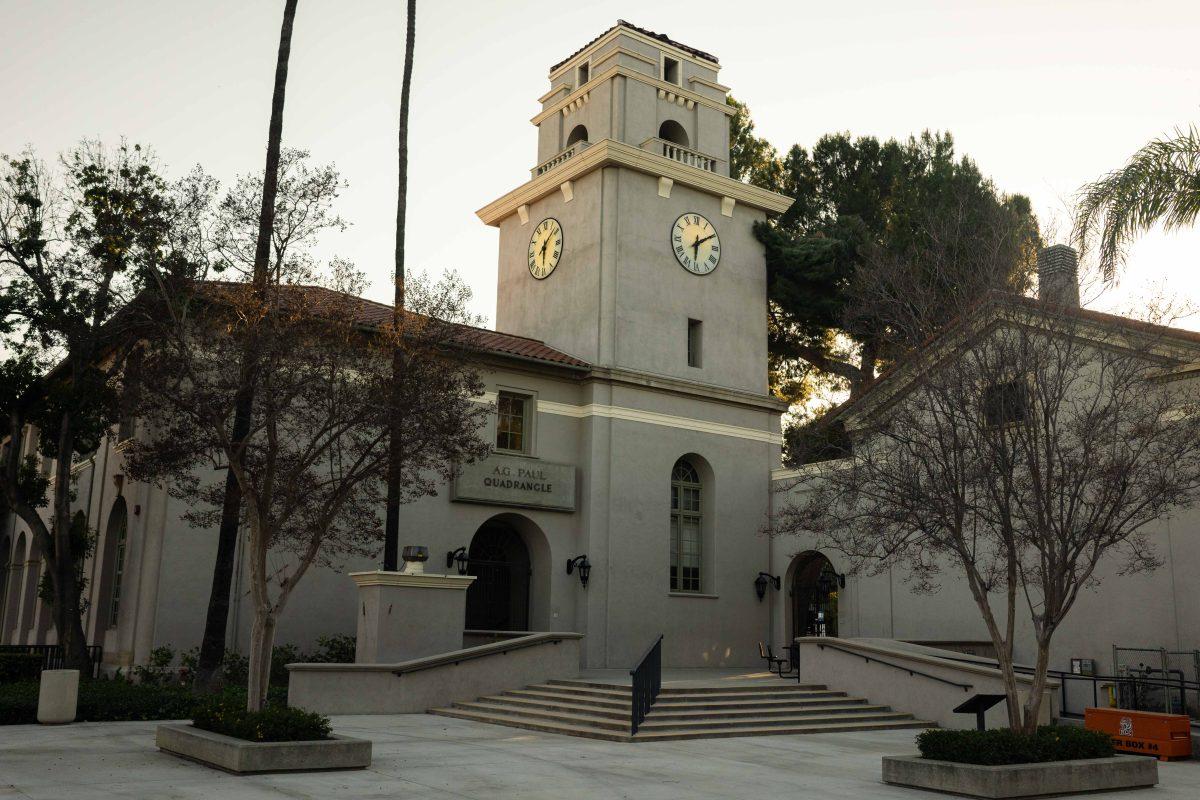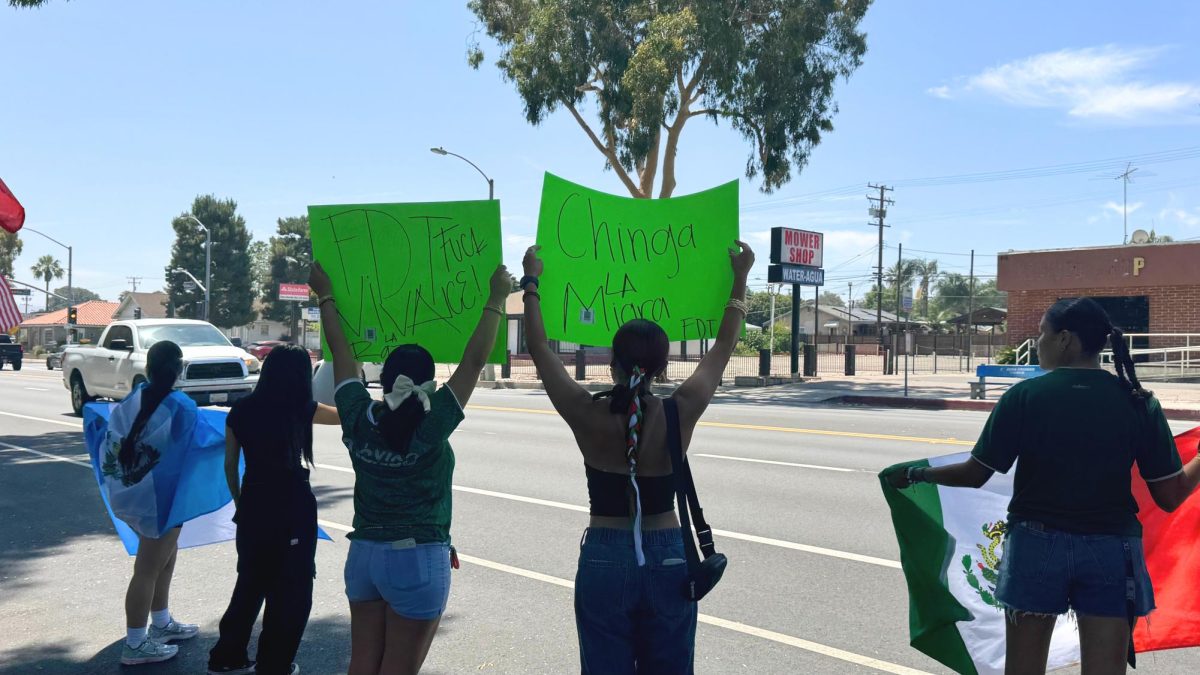
By Cheetara Piry
Several students expressed their discomfort toward Riverside City College’s student government after its presidential candidate’s sex offense conviction came to light.
Albert Jaramillo, 45, was convicted in 2014 of lewd or lascivious acts with a child under the age of 14. Jaramillo, who is currently the Associated Students of RCC Inter-Club Council director, is running unopposed for the student government’s presidency.
Students voiced their concerns during the open forum section of an Inter-Club Council meeting May 17 about the position the candidate may hold. Stefany Moctezuma, ASRCC vice president, addressed the students on behalf of Jaramillo.
Caresse Boulter, a former ASRCC member, said they asked Jaramillo to step down during a recent private meeting.
But Moctezuma argued that sexual assault survivors cannot ask Jaramillo to stop his candidacy and student government could not ask him to step down “just because they are uncomfortable.”
“I’m sorry, but that trauma is always going to be there,” she said. “You cannot just move people out of your way because you went through this. Other people do not stop just because you guys are uncomfortable.”
Nico Hughes, a Model United Nations member, said the aim is not to make Jaramillo disappear.
“It’s just they don’t feel comfortable with him at that high level position,” he said.
Although they are concerned with Jaramillo holding office, Hughes noted that students have voiced to him their full support of rehabilitation for formerly incarcerated people and Transitioning Minds, the campus club that supports students who have served time.
Annabelle Tamano, a concerned student, said a regular student’s inital reaction to ASRCC candidates is not to check the National Sex Offender Registry or Megan’s Law website.
She stated the student government’s reluctance to disclose this information beforehand is “irresponsible and displays a lack of transparency.”
Moctezuma responded that it is neither ASRCC’s nor the college’s responsibility to background check every student who attends the college.
“You guys can basically Google whoever you want — professors, advisors or students,” Moctezuma said. “It doesn’t mean that we need to share all of this information with all of you guys. It is not transparency for us to tell you guys and gossip and create all of this stuff.”
A similar situation took place eight years ago when then ASRCC President Doug Figueroa was revealed to be a convicted sex offender.
No changes to the bylaws resulted from the Figueroa situation, RCC President Gregory Anderson said at the Academic Senate meeting May 17.
Tamano noted a Viewpoints Campus Conversations indicated RCC students at the time felt the concealed conviction was unfair. Those students argued that ASRCC members should make their constituents aware of these types of convictions that exist within their ranks.
“People on campus have expressed the fact that the person before didn’t put out that information, (and) it was irresponsible,” Tamano said about the Figueroa situation.
Moctezuma disclosed in her response that other ASRCC leaders had taken office within the last few years who hold the same conviction status.
Shauna Kim, ASRCC president, did not provide a comment on the matter May 17.
“To know that this happens on a yearly basis just goes to show that nothing is being done,” Boulter said. “I feel no trust.”
Boulter said the lack of transparency would cause distrust between the institution, ASRCC and the student body.
“We’re basically being given no chance and no voice, because there’s just legally nothing that can be done,” they said. “I am so disappointed by how this is being handled and saddened to know that this has been happening and nothing is being done about it.”
According to the National Sexual Violence Resource Center, 81% of women and 43% of men reported experiencing some form of sexual harassment or assault in their lifetime. One in three female victims of completed or attempted rape experienced it for the first time between the ages of 11 and 17.
Boulter questioned what ASRCC would do to curb the harm to sexual assault survivors that could potentially arise from a Jaramillo presidency.
“Nobody has addressed the concern of what is to be done to preserve the well being of survivors who are students,” Boulter said.
Katie Caceres, another concerned student, echoed the concern over survivors and said women would ultimately not feel comfortable working alongside Jaramillo.
“The issue is not about (Jaramillo),” Caceres said. “The issue is the discomfort and the fear that they will feel.”
Moctezuma responded that Jaramillo is aware of students’ concerns and what his presidency may provoke to victims.
“However he’s also a student,” Moctezuma said. “He’s also a student that struggles. He’s also a human being.”
Caceres proposed that when a student runs for presidency or any higher up position, there should be a system set to address sexual abuse convictions.
Anderson said he wants to balance the interest of fairness for those who have gone through the legal system and the student body’s concern over a member of ASRCC who may hold a high level position with that type of offense.
“I’m talking about the balance of serving all of our students and trying to find ways to support faculty interests, and listening as carefully as I can, with as much empathy and humility as I can,” Anderson said.
Anderson added that legal counsel will be continuously sought in order to ensure adherence to the law.
A special election will be held May 25-27 due to there not being enough students casting votes to constitute a proper election May 12-13.



















Liv • May 18, 2021 at 10:22 am
Based on the direct quote from Stefany Moctezuma, I am fairly certain she does not know what transparency is. Also, we absolutely can protest his leadership role based on feelings of discomfort. The way she responds to these questions defensively and divisively rather than offering understanding and support for the students who have concerns about Jaramillo makes her sound belligerent and self-righteous. She belittles survivors of sexual assault by basically telling them to get over it because other people need to live their lives. Her brazen attitude is in good company with Jaramillo. Sad!